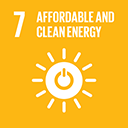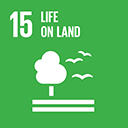
Biomass, principally firewood and charcoal, holds huge importance in Rwanda, accounting for a significant proportion of energy consumption. Biomass is often the predominant source of energy for cooking and water boiling, especially in rural areas. Cooking is generally carried out on thermally inefficient traditional devices and produces large amounts of smoke and indoor air pollution.
The replacement fuel-efficient stove will lead to a significant reduction in the annual usage of biomass for users. The improved stove has been designed to balance efficiency, safety, cost, stability and strength with a focus on using locally available materials.

and hence more money to spend on other essential goods & services

thanks to reduced indoor air pollution

as they are mainly responsible for cooking and collecting firewood

providing an efficient and cleaner source for cooking

reduced annually on average by reducing fuel use when cooking

needed compared to traditional stoves, relieving deforestation pressures
By reducing the consumption of non-renewable wood and providing cookstoves with fuel savings, this project reduces the amount of greenhouse gas emissions into the atmosphere. A decrease of deforestation has a positive impact on biodiversity. Households save money by having less fuel requirements for cooking the same amount of food and health is improved through the reduction of indoor air pollutants from cleaner cookstoves. The project also generates employment and income for people distribution and maintenance of the stoves, as well as training and employing community education staff.